Window air conditioners (AC) are a great way to cool down your space, especially if the area you need to cool down is just fairly small. However, they do have downsides, too, just like any other unit, including the "on" and "off" compressor functions. Do you want to discover the causes behind it? To help you with your interest, we did extensive research on this, and this is what we discovered.
The causes of the AC compressor turning on and off are as follows:
- Faulty thermostat
- Wrong thermostat placement
- Temperature sensor issues
- Clogged AC air filter
- Refrigerant leaks
- Freezing evaporator coil
- Filthy condenser coil
- Electrical issues
- Adverse weather condition
- Faulty compressor
In this article, we'll go over every one of the most likely reasons for the compressor in your window air conditioner going on and off. Although they seem overwhelming, the majority of these problems are simple to resolve. So keep on reading to learn more.
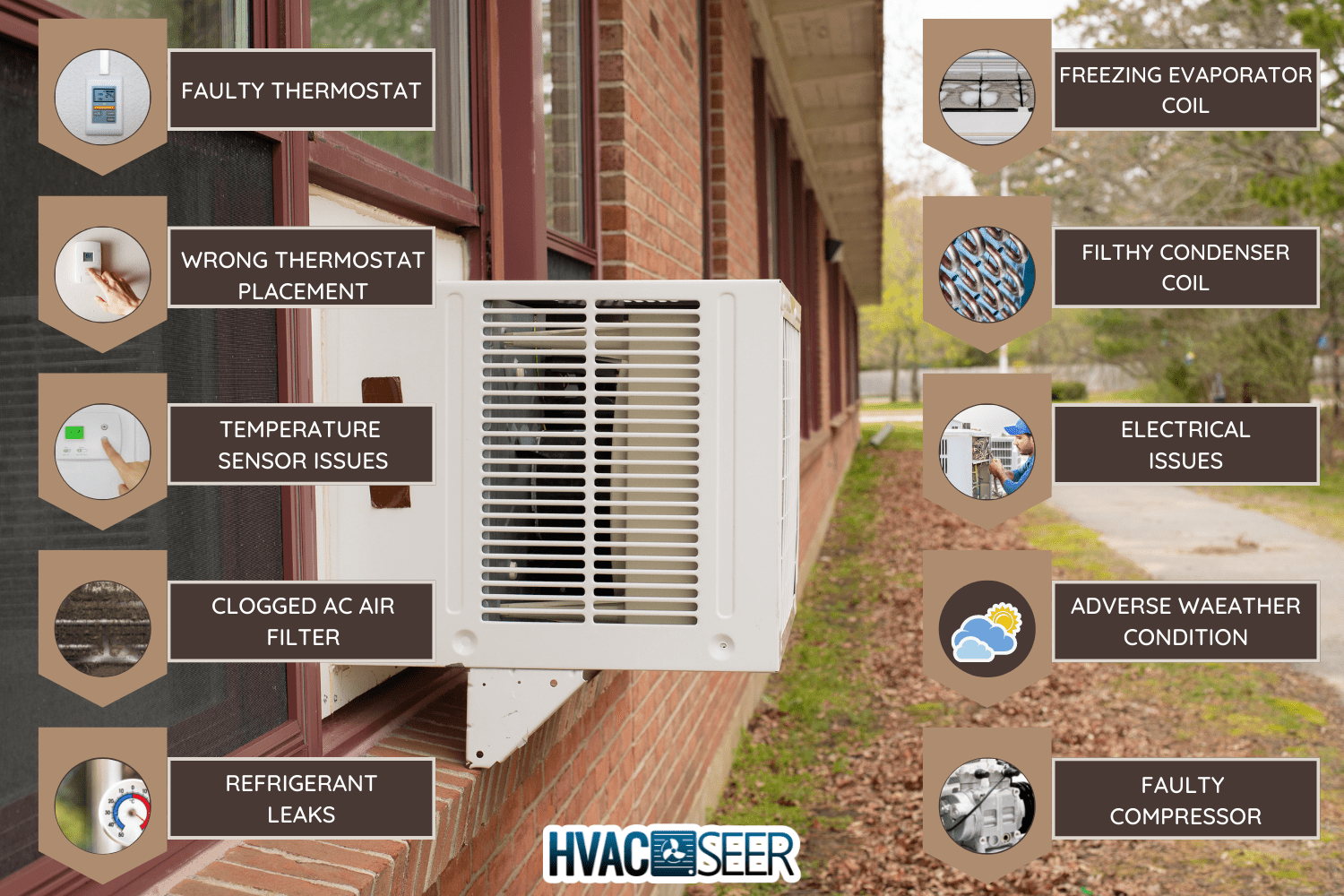
Why Does My Window AC Compressor Turn On & Off?
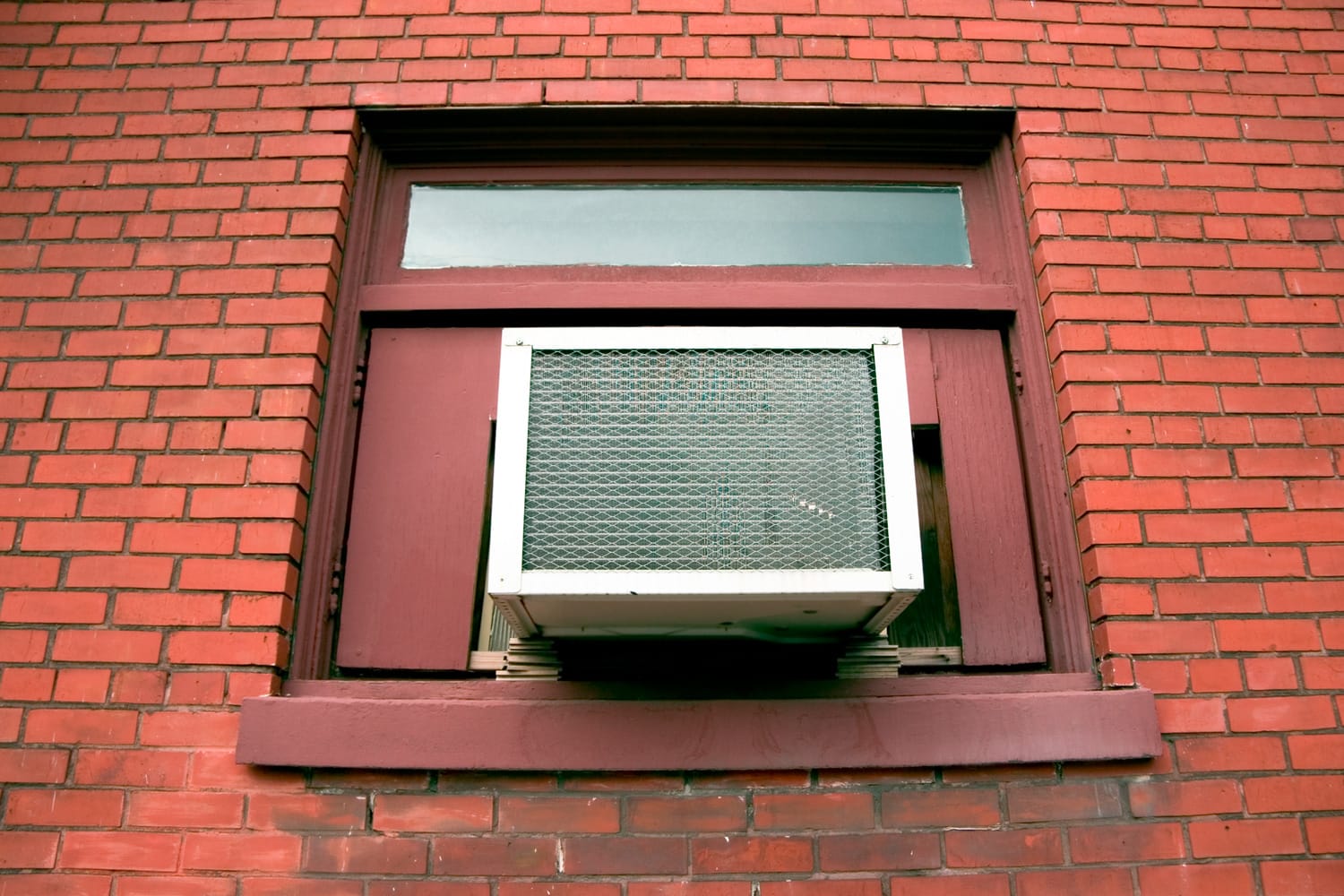
All air conditioners, whether window, wall-mounted, or ductless, shut off when the set temperature is attained. The device won't restart and remains to work until the internal temperature sensor senses a temperature change.
But now, it seems as though AC units have a mind of their own and start turning on and off without reason—and, more crucially, without really cooling the space. Short cycling is the term for this event.
Short cycling is seen in AC units that cycle on and off every few minutes and requires rapid care. Below are some of the possible reasons why this is occurring.
Faulty Thermostat
There may be issues with the thermostat causing your AC compressor to cycle on and off quickly. A thermostat, though it may appear to be a minor component of your air conditioning system, is crucial since it regulates temperature.
The AC system receives the erroneous signal and begins continually turning on and off when the thermostat misreads the temperature and transmits it. Additionally, if the thermostat's screen is blank, it may have low battery power, which would cause your AC compressor to cycle on and off continually.
You might want to try replacing the thermostat's batteries and then restarting it. A video tutorial on replacing the battery is shown on YouTube below.
Wrong Thermostat Placement
A thermostat regulates the interior temperature and communicates when to turn on and off the AC system. Inaccurate thermostat readings might result from placing the thermostat incorrectly.
Some undesirable locations for a thermostat include: next to a window that receives direct sunlight, below or near the supply air vents, and next to the area that receives the greatest heat from the home, such as the kitchen.
These areas could result in the thermostat receiving erroneous temperature readings and causing many on and off cycles. Moving the thermostat to a more central location will easily solve this problem.
Temperature Sensor Issues
A temperature sensor (thermistor) is standard equipment on all window AC. Although you can't see it since it's concealed inside the AC's front-facing shell, this component is located on the room-facing side of the evaporator.
The sensor's primary function is to measure your room's temperature, as suggested by its name. When the desired temperature hasn't been attained, it uses that measurement to determine whether to keep running or shut off the compressor.
We have, regrettably, observed some window air conditioners with malfunctioning temperature sensors. The compressor, which depends on the sensor, might cause the unit to turn on and off as it no longer detects the temperature properly of your room.
You'll need a multimeter and the thermistor's technical specifications from your window AC to test the sensor. When you have them, look over the control panel. The sensor may still function properly, but only because of a loose connection to the control board.
Click here to see this multimeter on Amazon.
Clogged AC Air Filter
It makes sense that it is the root of the majority of AC problems. A filthy and clogged filter restricts airflow, which causes several problems, including short cycling. The fact that dirty AC filters increase power consumption by 5–15%, may also be the cause of your AC compressor cycling on and off frequently.
Regularly replace or clean your unclean air filter to prevent bigger, more expensive issues. Call a technician to examine other internal components if short cycling persists. Proper cleaning of the window AC air filter is shown on YouTube below.
Refrigerant Leaks
A coolant called refrigerant, sometimes known as "freon," circulates throughout your system to assist heat removal from the air inside your home and cool it down. Your AC system could run out of refrigerant due to refrigerant leak.
Although it's a common myth, low refrigerant levels are actually caused by tiny holes that allow refrigerant to leak, not by the AC cooling process. Because of low pressure, a low refrigerant level might cause the compressor to malfunction and shut off.
The compressor switches back on when the pressure rises, this pattern of turning on and off accelerates the deterioration of your AC and increases the risk of a system failure. Refrigerant leaks pose risks to people. To address the leak, you ought to seek advice from a reliable HVAC service.
Freezing Evaporator Coil
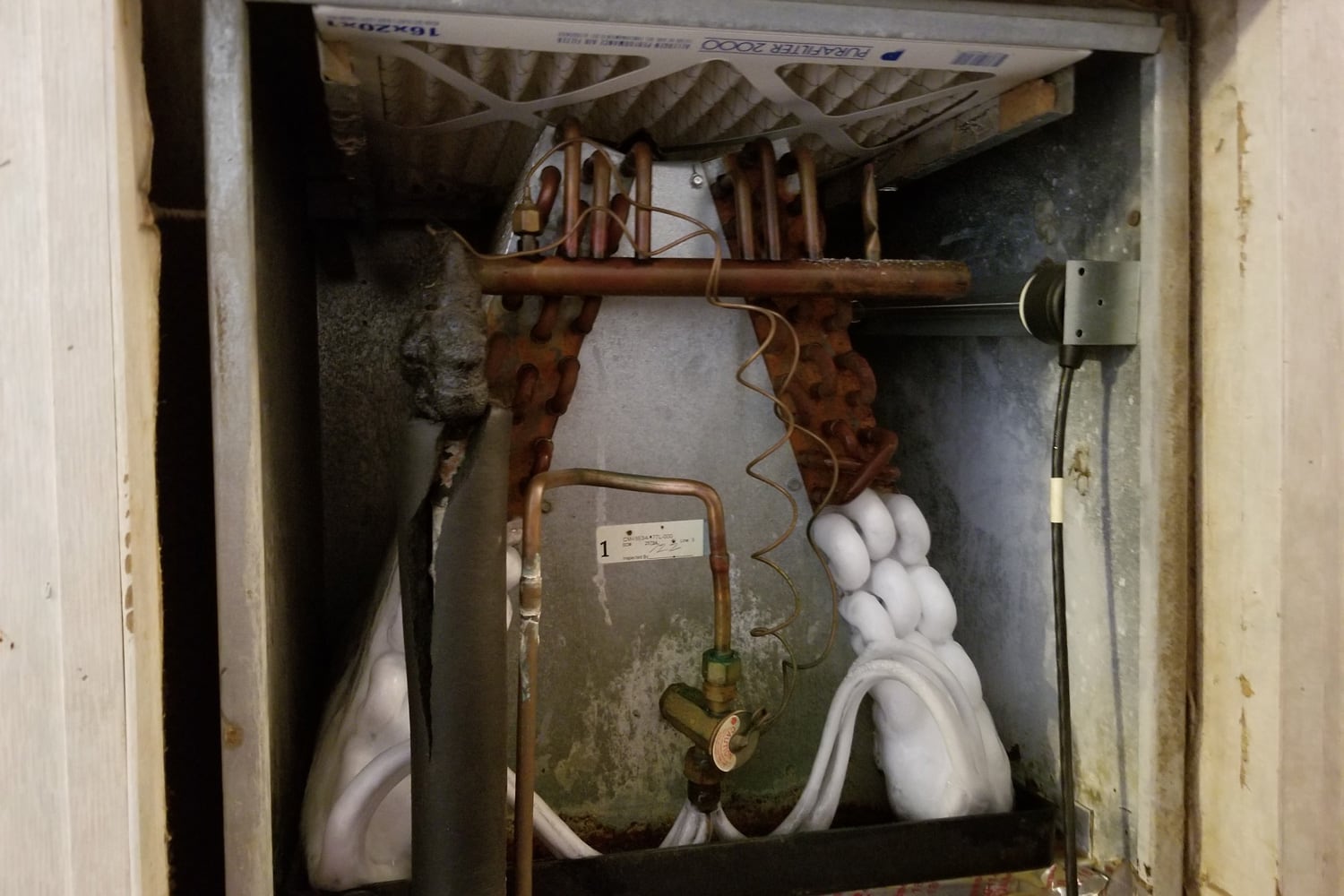
The evaporator coils in your air conditioning system might be freezing up if there are problems with ventilation or a refrigerant leak. When this occurs, your AC compressor—or occasionally just your outdoor AC unit—will shut off until the ice thaws and then turn on again.
If you've already examined your air filters and your outside AC unit still has ice buildup, you probably have a refrigerant leak. To discover and repair the leak, call a local HVAC professional.
Filthy Condenser Coil
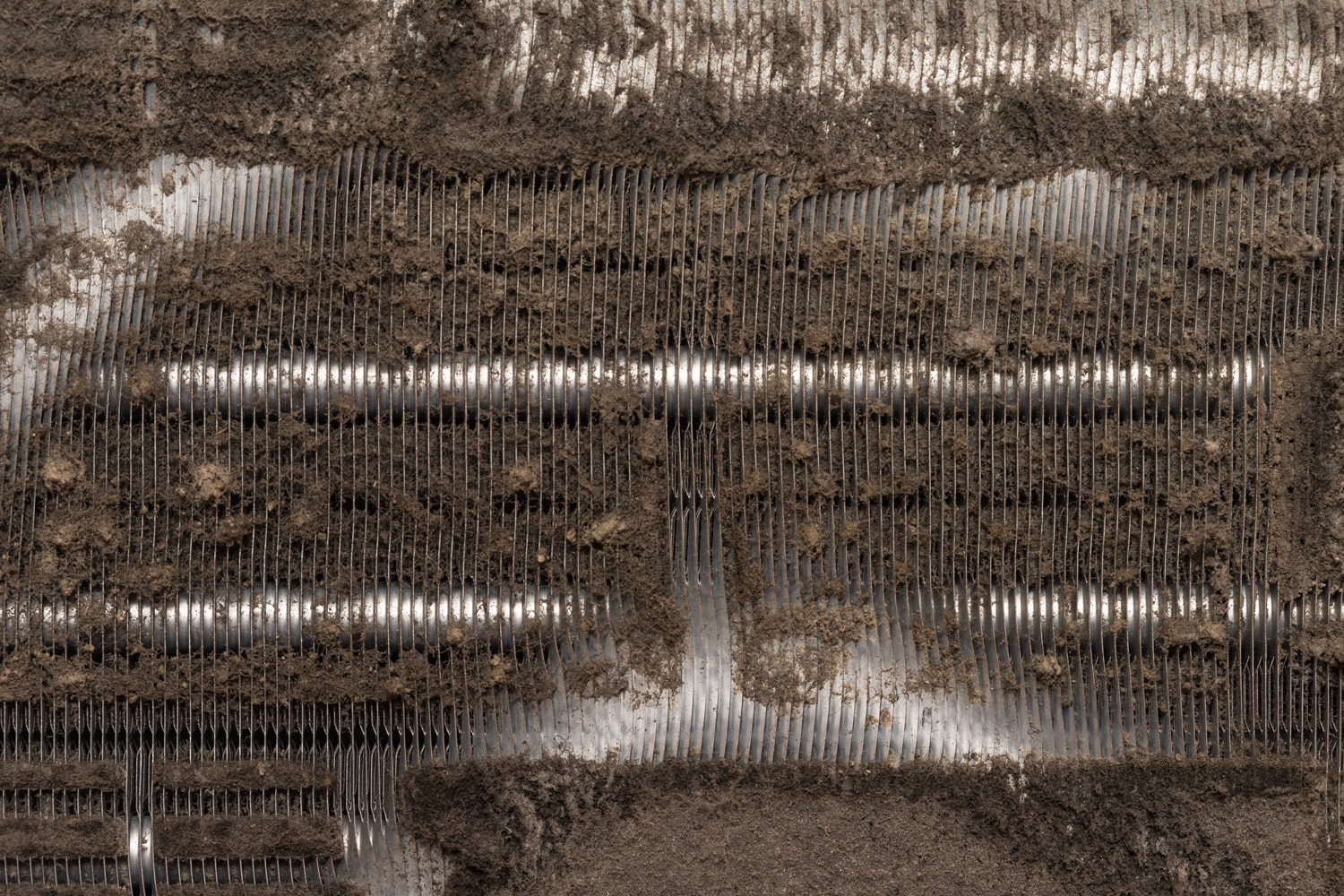
If your outside AC keeps going on and off and you haven't done any AC maintenance in a while, it's possible that the condenser coils are covered in dirt and debris. The heat from within your house is released through condenser coils, which are found inside the outside air conditioner.
Your AC may overheat, causing the AC compressor to turn on and off if it's blocked with too much dirt. Have a local HVAC company do regular AC maintenance or clean your condenser coil as shown on YouTube below.
Electrical Issues
Your home's electrical system may be to blame if you're having trouble with your new window unit's AC compressor turning on and off. Appliances such as AC are well known to use a lot of electricity to function. Unfortunately, the load that the AC is creating sometimes exceeds the capacity of our home electrical systems.
Because of this, AC units might frequently turn on and off even when all of their parts are in working order. If you think this might be what you're experiencing, call an electrician.
Adverse Weather Condition
Another explanation for the frequent on-and-off operation of AC compressors is unusual or adverse weather conditions. Extreme heat throughout the summer may be to blame for the AC unit overheating and failing to function properly. In the winter, AC with a heating function may provide you with a similar but different experience.
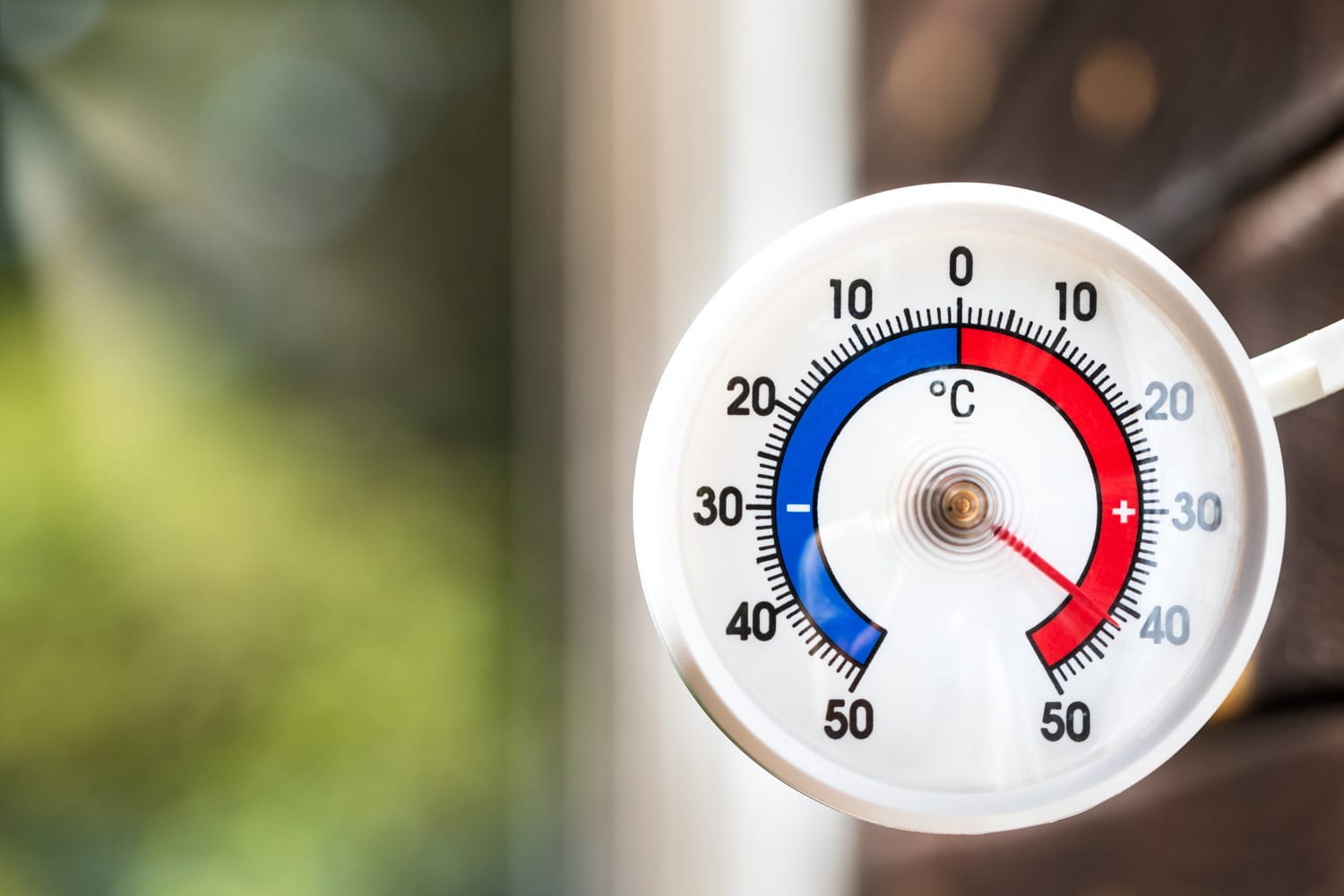
Heat and cold can harm an AC's components permanently, though not to the extent of clogged filters or poor power supplies. When it comes to adverse weather and how it affects your AC system, you have two options: wait it out or cover the unit from the elements.
Worn-Out Compressor
A compressor that is nearing the end of its life could be the cause of your AC's frequent on and off cycles. In terms of both the cost and the amount of time needed to remedy the problem, this is the worst-case scenario. It's essential to recognize the warning indications of a faulty AC compressor to stop further harm to the appliance.
The unit's rear has poor hot airflow, less airflow coming from the unit's front than normal, making loud noises, circuit breaker tripping repeatedly, and excessive power costs are just a few signs of a worn-out AC compressor.
If your compressor is broken, your only option is to hire an AC repairman. They'll suggest additional steps based on the defect. The compressor or the entire unit will probably need to be replaced, according to their recommendations.
How Much Does Window AC Repair Or Replacement Cost?
Any appliance will eventually reach a point where you must choose whether it is more cost-effective to keep maintaining it or to buy a replacement. Window AC repairs averagely cost $245, but they can cost as little as $50 for minor issues or as much as $900 for more serious ones.
Comparing your contractor's estimate to the price of a replacement unit is the best thing you can do when determining the value of a repair. The cost of a window AC can range from less than $150 to more than $500 per unit.
How Long Does the Window AC Last?
Even on the hottest summer days, a quality window AC can keep a room cool and comfortable throughout the day. It can last for a very long time before needing to be changed. A window AC's lifespan is roughly 10 years. However, depending on how frequently you service your air conditioner, it can last much longer or much shorter.
Make sure you're cleaning your unit frequently and taking care of any maintenance difficulties or other issues to increase its lifespan by consulting the usage and care manual for your particular unit.
Conclusion
Although some of you may possess the necessary technical know-how to resolve any of those issues above independently, it is always preferable to leave the technical matters in the hands of the professionals. Their expertise will guarantee that it won't occur again for some time.
See more about window AC topics below.

